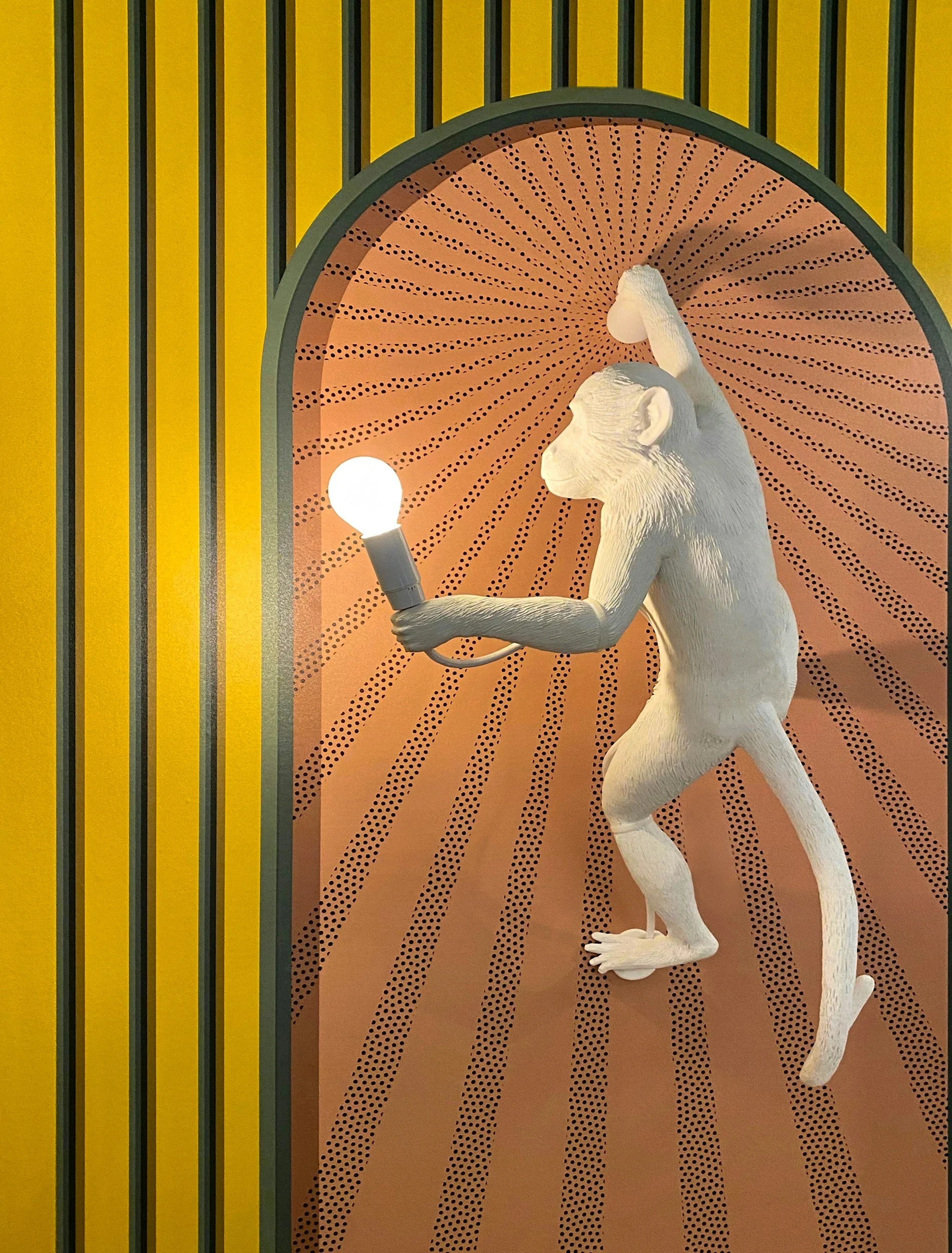
BLOG
- Attachment Issues
- Coronavirus
- Couples Therapy
- Extramarital Affairs
- Family Life and Parenting
- How to Fight Fair
- Inlaws and Extended Families
- Intercultural Relationships
- Marriage and Mental Health
- Married Life & Intimate Relationships
- Neurodiverse Couples
- Separation & Divorce
- Signs of Trouble
- Social Media and Relationships
- What Happy Couples Know
Are We Misreading Neurodiversity for Narcissism…Again?
In the ongoing saga of “Why is this person so weird and hard to be around?”, psychologists have once again trained their lenses on narcissists.
And fair enough—narcissism is often an elegant explanation for behavior that feels disorienting, self-centered, or socially clumsy.
But what if that elegance is a bit too convenient?
What if this body of research—while meticulously designed and statistically sound—is accidentally mistaking neurodivergent misattunement for narcissistic malevolence?
Let’s ask, as any decent therapist or slightly paranoid AI should: Are we conflating narcissism with neurodiversity… again?
Neurodivergent Rest: You’re Not Lazy, You’re Depleted. How Fatigue Has Been Misdiagnosed as Failure
Let’s say it plainly:
If you are neurodivergent, chronically ill, trauma-wired, or merely a soul surviving capitalism in a glitchy body…
You are not lazy.
You are depleted.
And there’s a difference.
Laziness implies a moral shortcoming—an absence of effort, discipline, will. Depletion is physiological. Depletion is environmental. Depletion is earned through contortion.
And the cure isn’t more shame or another productivity app. The cure is redefinition—of rest, of self-worth, of what it means to pause.
Hyperfocus Episodes: Where Passion Becomes Praxis and You Forget to Pee
If attention is currency, then hyperfocus is a black-market economy.
It’s unpredictable, obsessive, and gloriously inefficient in capitalist terms—which is precisely why it’s so beloved in neurodivergent circles and so meme-worthy online.
But beneath the jokes about owl taxonomy and 3AM Wikipedia spirals lies a neurological rebellion: a rejection of the assembly-line model of productivity.
And the science? It’s catching up.
ADHD Task Paralysis Isn’t Laziness: It’s Executive Function Gridlock in a Capitalist Hellscape
There you are, sitting at your desk, staring at the three-item to-do list like it’s the Dead Sea Scrolls.
You know the first task is “Email James.”
Just two words. You understand the task. You want to do the task. And yet—your hand hovers near the keyboard like a stunned starfish.
This is not laziness.
This is task paralysis: a physiological, neurological, and emotional freeze that is frequently misdiagnosed as sloth by bosses, spouses, and that Calvinist taskmaster in your own mind.
RFK Jr. vs. Autism: A Cautionary Tale
Robert F. Kennedy Jr. wandered out of a Whole Foods conspiracy subreddit and directly into the national spotlight, dragging behind him a tangled ball of half-read abstracts, mercury panic, and the kind of statistical illiteracy that would make a 7th grade math teacher weep into her TI-83.
In his latest crusade against science, he’s resurrected the moldy myth that vaccines cause autism—a claim so thoroughly debunked it now loiters in the same intellectual graveyard as phrenology, bloodletting, trickle-down economics, and New Coke.
But RFK, ever the tragic understudy in the play of American Camelot, insists he’s just asking questions—loudly, confidently, and with all the nuance of a leaf blower in a library.
So buckle up. We’re going spelunking in the dark caverns of medical misinformation, where Bobby’s torch is powered entirely by neuro-normative bias.
The Girl Who Hid From Mirrors
Her name — well, not her name, not the one they gave her at the thousand-dollar-a-plate fundraiser where they snickered sotto voce about her trust fund like a debutante beheading — but the name she used in the small circles of the self-aware and socially anxious — was Fiona.
Fiona had red hair like a warning sign. Like an old God’s middle finger. It flamed around her face like a Roman candle going off in slow motion.
She painted large, frightening canvases.
Wrote poems so intimate you felt indecent reading them.
And she had money. Enough to never work. Enough to flee any room the moment someone looked too long. Or smiled too hard. Or asked her, gently, “What do you do?”
And that was the rub. Fiona didn’t want to be looked at.
She wanted to be seen — but appropriately.
With the right kind of respect, the kind you reserve for tragic statues or rare birds or the last cigarette in the pack. And if you couldn’t manage that? She’d rather disappear. Into the garden. Into the bathtub. Into a painter’s smock so large it could qualify as an anti-espionage device.
ADHD, Rejection Sensitivity, and the Spotlight Effect on Steroids
People with ADHD face a different, but equally potent, variation of this. Many experience rejection sensitivity dysphoria (RSD) — a term popularized by Dr. William Dodson to describe the exquisitely painful emotional reaction to perceived criticism or social judgment.
It’s not an official DSM diagnosis, but it shows up in clinics, relationships, and therapy rooms every day.
Where the spotlight effect makes a neurotypical person slightly self-conscious, RSD says: Everyone saw me mess up, they now hate me, and I can never show my face again. In essence, it's the spotlight effect with gasoline poured on it.
And this becomes even more complex when you factor in emotional dysregulation, a common trait in both ADHD and autism. The fear of being seen making a mistake — or worse, being too much — can lead to avoidance, masking, people-pleasing, and burnout. These aren’t quirks. These are survival strategies.
Why Have We Been Thinking About ADHD in Such a Limited Way?
In the beginning, there was chaos. And Ritalin said, "Let there be focus," and lo, the child sat still. And there was much rejoicing. For a week.
Let us begin with the grand American tradition of solving complex socio-environmental problems with prescription drugs.
Enter your typical 1990s research psychologist, James Swanson.
A decent man in a lab coat, probably wore corduroy blazers, believed in graphs. He thought 3% of kids had A.D.H.D. and that Ritalin helped.
Not cured. Helped. That was the dream.
Then he blinked, and it was 11%. Now it's 15.5% of adolescents, 23% of 17-year-old boys, and somewhere, a pharma executive is buying his fourth house in Aspen.
The ADHD Time Machine: the Rope of Unwanted Memory
A new study has confirmed what people with ADHD already knew but couldn’t prove without a clipboard and a research team: their brains are less a filing cabinet and more a malfunctioning slideshow—spontaneous, irrelevant, and mostly uninvited.
Published in the British Journal of Psychology, the research shows that people with ADHD symptoms experience significantly more involuntary memories in daily life than those without—and these memories are often less fun than a bad high school reunion.
That’s right: not only do ADHD brains wander into the future (mind-wandering, daydreaming, overplanning your Nobel acceptance speech while microwaving coffee), they also get yanked backward.
Into cringe. Into regret. Into half-forgotten episodes of heartbreak, third-grade humiliation, and whatever you said in that email draft you never sent but still obsess over.
The Neurospicy Household: When Chaos Is a Love Language
There was a time when a household like this would be described—politely—as "a lot."
The calendars don’t match.
The noise levels are a study in amplitude.
The fridge has six different milk substitutes, none of which are labeled. No one remembers whose turn it is to take out the trash, and honestly, that discussion might cause a shutdown.
Welcome to the Neurospicy Household—a meme, a reality, and a quiet revolution in family life.
It’s the term of endearment popping up across ADHD TikTok, autism blogs, late-diagnosis memoirs, and therapist Instagram accounts.
A house where everyone is neurodivergent and learning to function together—in a way that doesn’t always look tidy, but often feels deeply honest.
ADHD Linked to Distressing Sexual Difficulties, New Study Finds
A recent study published in the Archives of Sexual Behavior has found a significant connection between ADHD symptoms and distressing sexual problems in adults.
Folks who screened positive for likely ADHD were over twice as likely to report painful and persistent struggles with sexual function and satisfaction compared to adults without ADHD symptoms.
The results suggest that the same emotional regulation and attention difficulties that disrupt daily life in ADHD may also interfere with the ability to feel connected, satisfied, and at ease in intimate relationships.
The Trauma-Autism Diagnostic Gray Zone: Adult Autism vs. C-PTSD
In the past decade, a growing number of clinicians and researchers have begun wrestling with what many now call the “trauma-autism diagnostic gray zone.”
This refers to the complex clinical overlap between Developmental Trauma—especially complex PTSD or early relational trauma—and autism spectrum disorder (ASD).
Increasingly, families, therapists, and neurodivergent adults are raising concerns about missed diagnoses, misdiagnoses, or dual presentations that defy traditional diagnostic categories.
So how did we get here? And what does the research really say?











